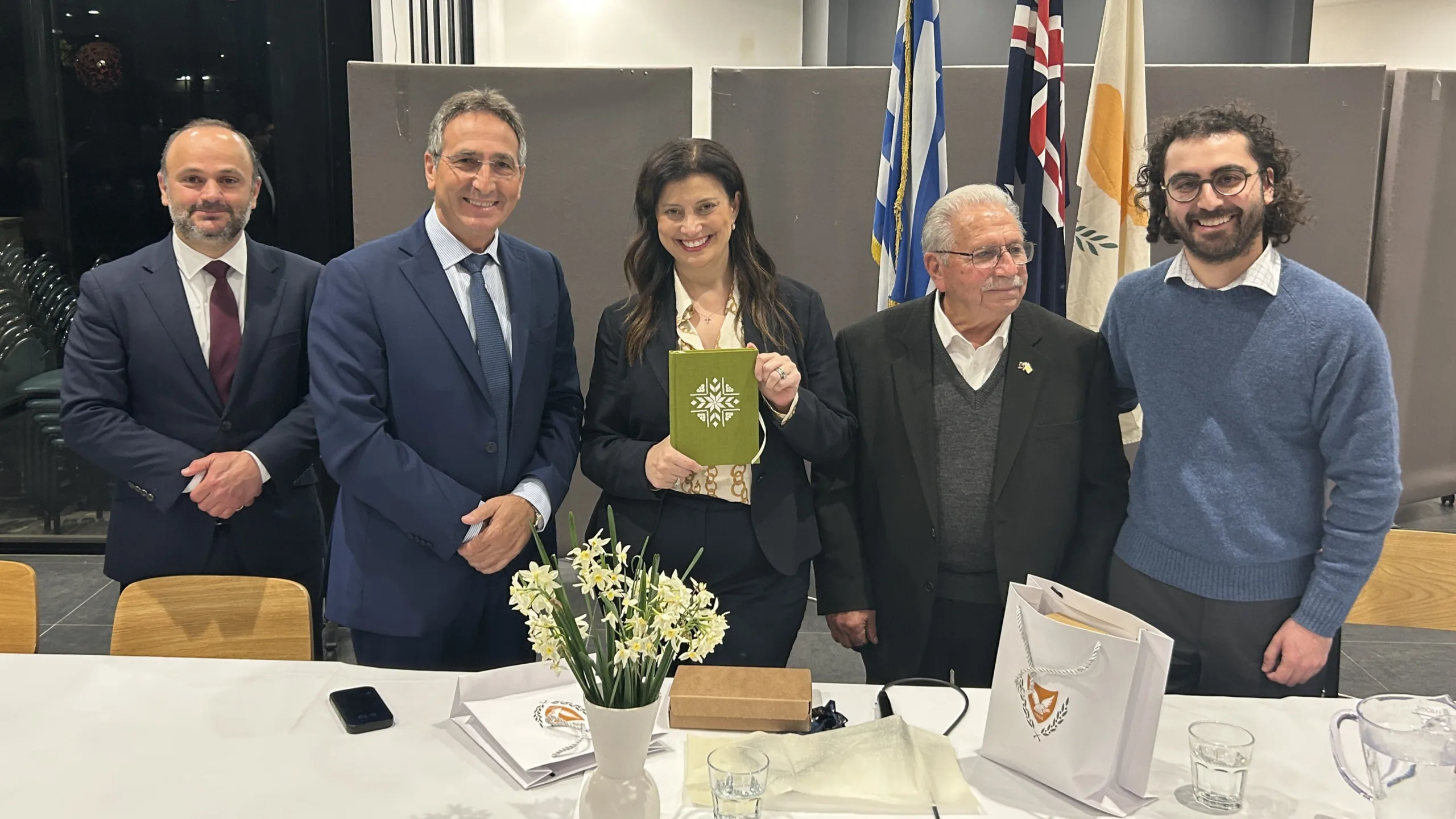Continuing through a period of remembrance, following the community’s commemoration of the 51st anniversary of the Turkish invasion of Cyprus on July 22, the Cyprus Community of South Australia, in association with the Justice for Cyprus Coordination Committee SA (SEKA SA), held an important platform for dialogue at the Cyprus Community Hall in Welland.
On Tuesday, July 22, a community forum was held focusing on the latest developments in the Cyprus Problem, drawing an engaged group of attendees eager to delve into this enduring geopolitical and national matter.
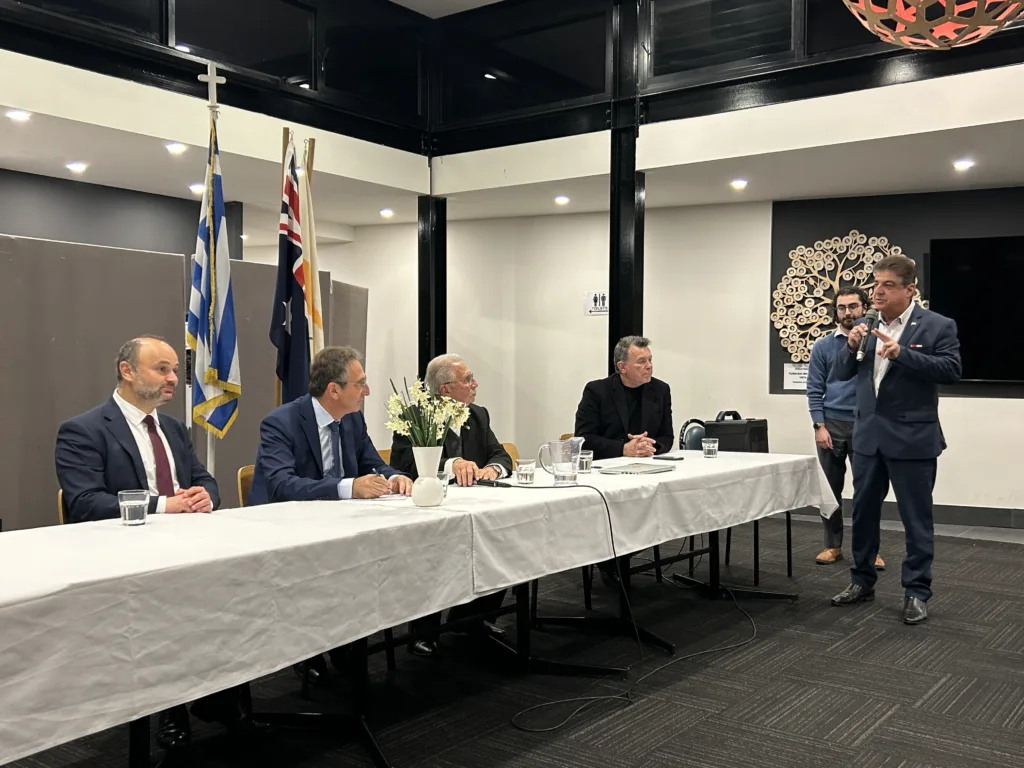
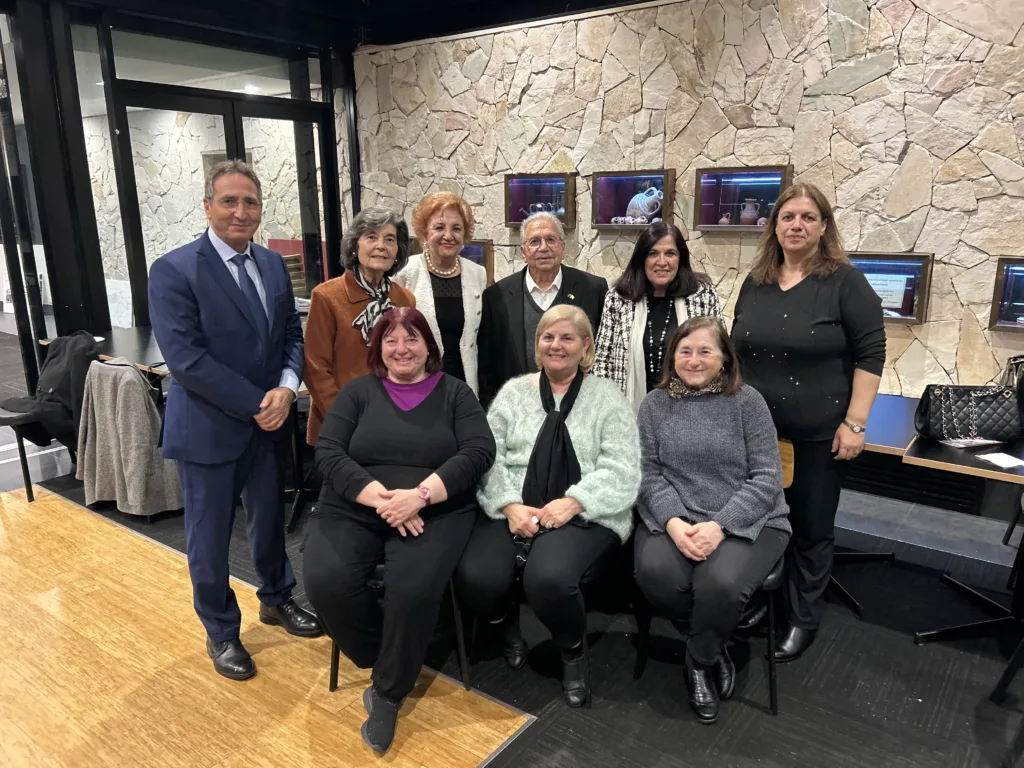
The event featured Antonis Sammoutis, High Commissioner of the Republic of Cyprus in Australia, and Andreas A. Gregoriou, Permanent Secretary to the Ministry of Agriculture, Rural Development and Environment, and Head of the Presidency Administration of the Republic of Cyprus.
Mr Sammoutis opened the forum and acknowledged the enduring challenge of the Cyprus Problem: “Usually we say there is good news and bad news… I’ll start with the bad news. As we are here on the anniversary which comes each year, this is the worst period in the history of Cyprus in over the 3,000 years of its history. Even the invasion of Cyprus in 1570 didn’t change the demographics in Cyprus that much, [or effect] the Greek Cypriot majority. But the invasion of 1974 put an end to 3,000 years of Greek history in the north of Cyprus.”
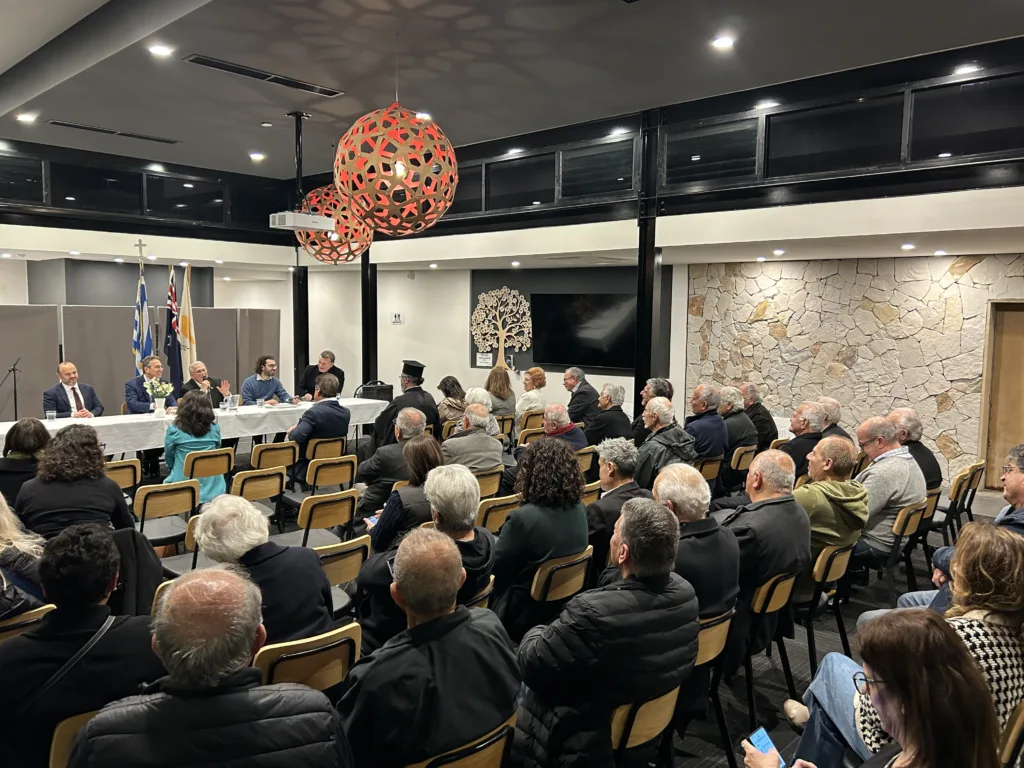
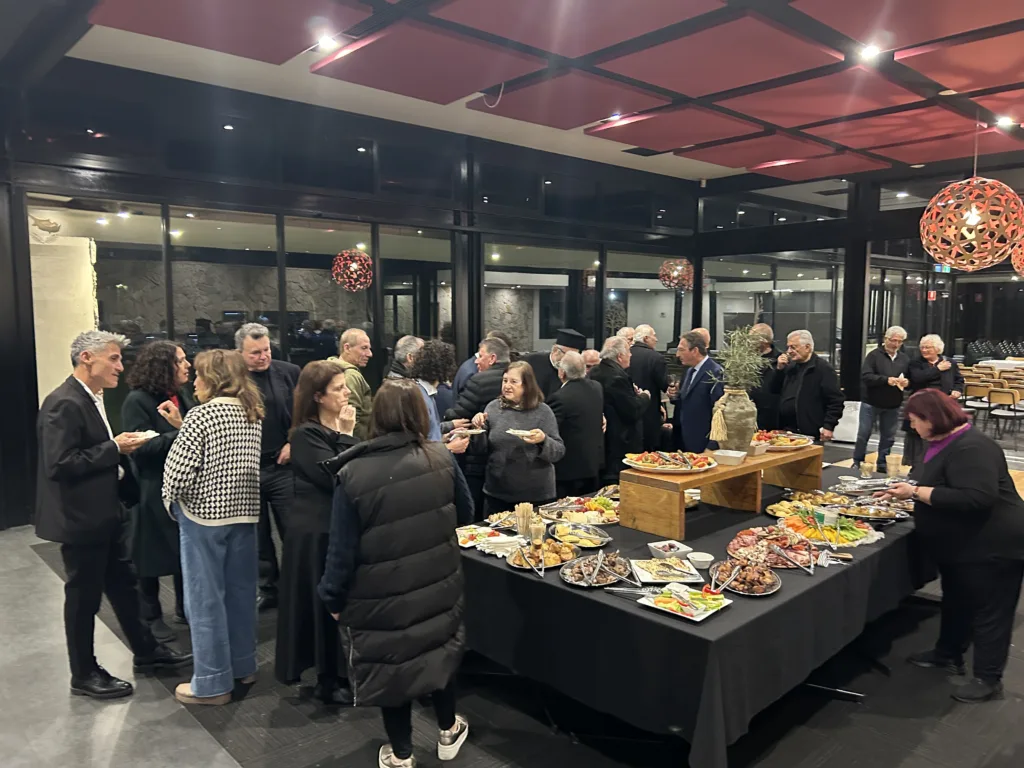
Turning to current realities in the north, Sammoutis warned, “We all know what happened, but what is ongoing in the North, it’s also as bad as the invasion, because there is an ongoing change in demographics. There’s a new [Turkish] coalition forming, and Cypriots are marginalised. There’s Islamisation at the same time, and the expropriation of properties, destruction, and militarisation. So, all these on the ground are not good at all.”
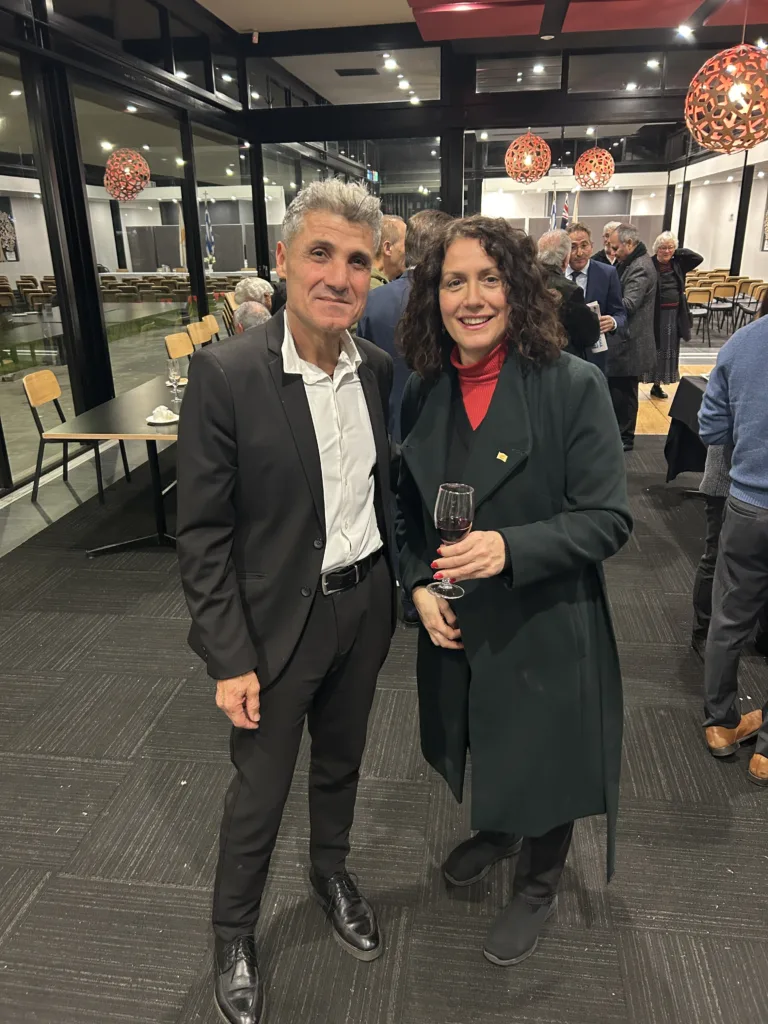
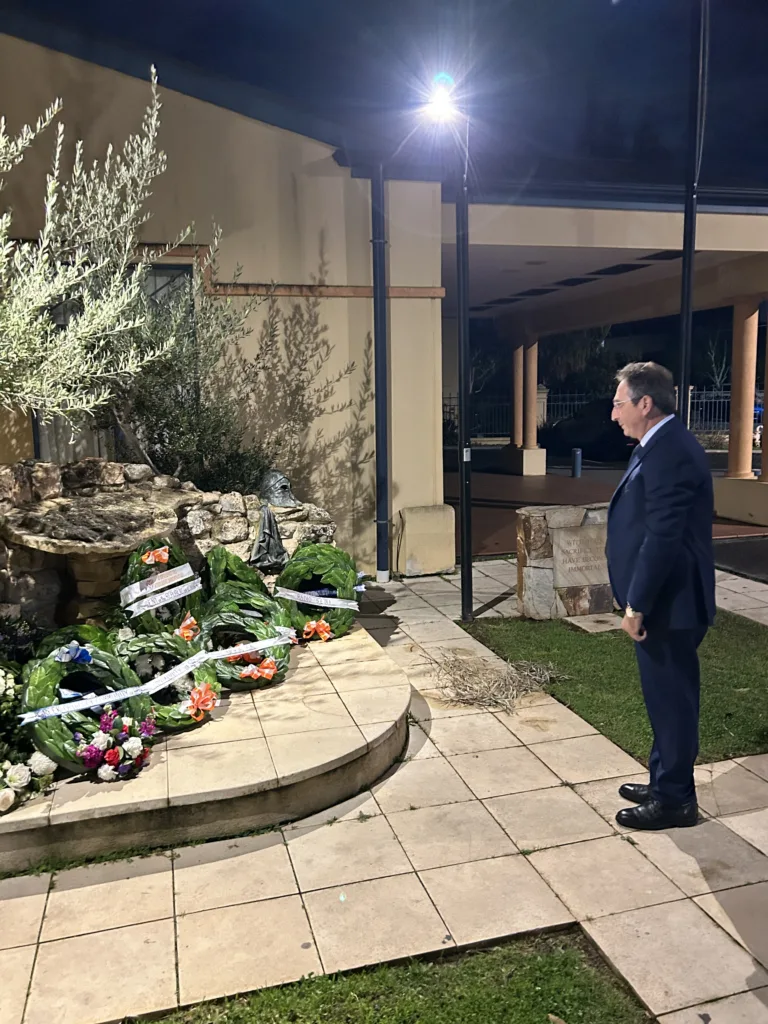
Despite this sobering assessment, Sammoutis pointed to Cyprus’ EU membership as a continuing source of resilience and gives “us a new strength to fight against the recognition of another state in Cyprus.”
After these remarks, Mr Gregoriou received questions from Cypriot community members. The questions and discourse encompassed a broad spectrum of pressing issues, reflecting the community’s profound concern with the enduring challenges surrounding the Cyprus Problem, and the domestic affairs of the Republic of Cyprus more broadly.
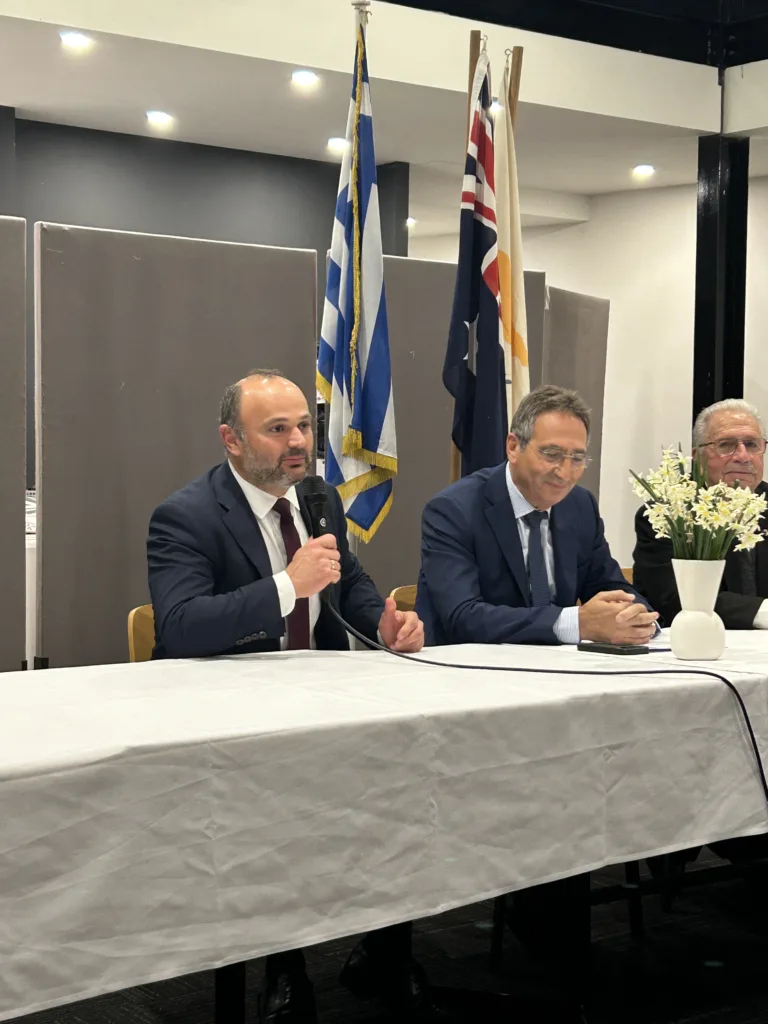
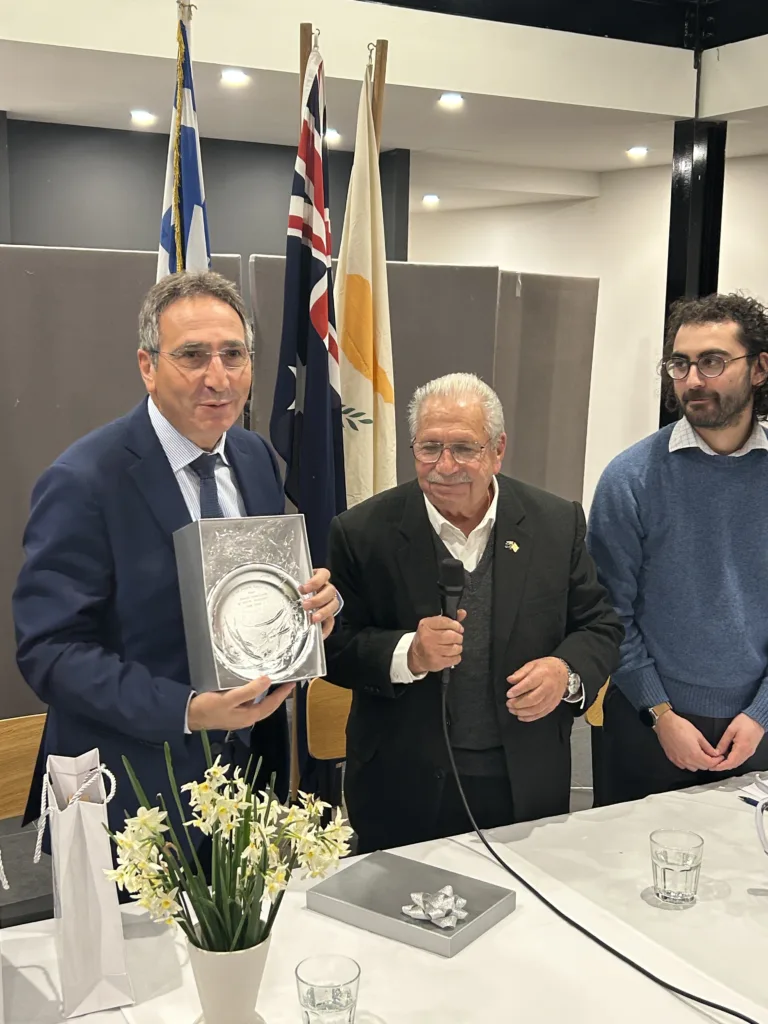
Attendees voiced their anxieties over the long-standing psychological toll endured by Cypriots – referred to as κόπωση (koposi) – a term encapsulating the deep fatigue and disillusionment that has grown over decades of political deadlock.
The conversation also turned to the core question of Cyprus’ future: whether the island’s long-term aspiration should be reunification, a bi-zonal federation, or an internationally recognised division into independent states.
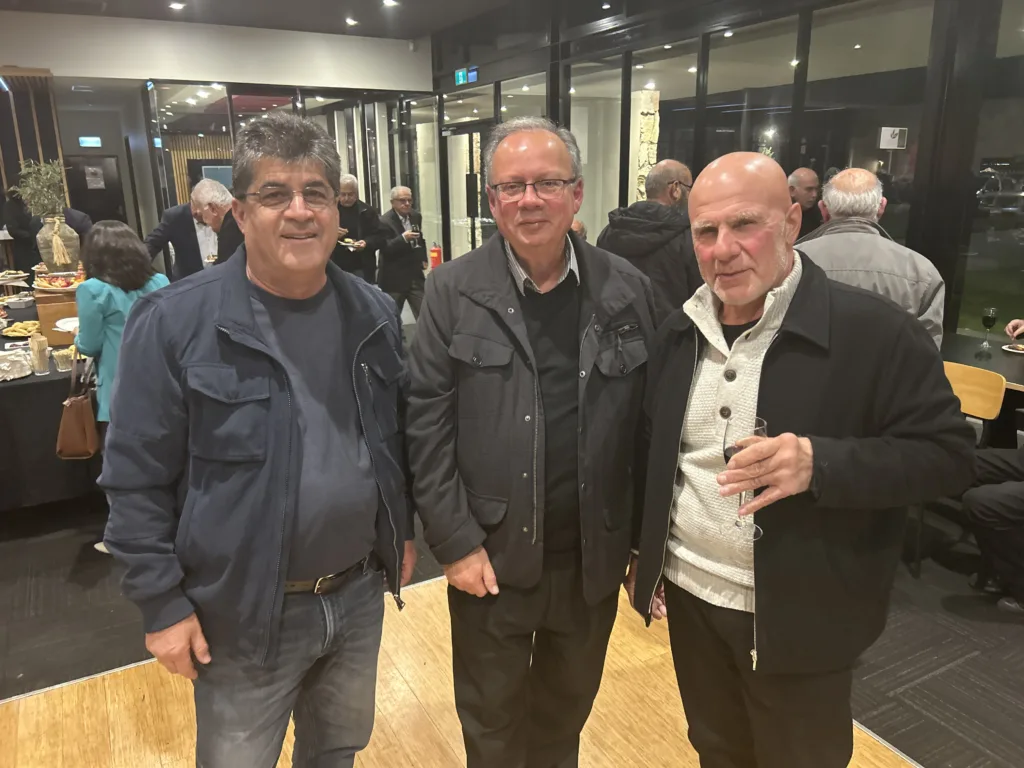
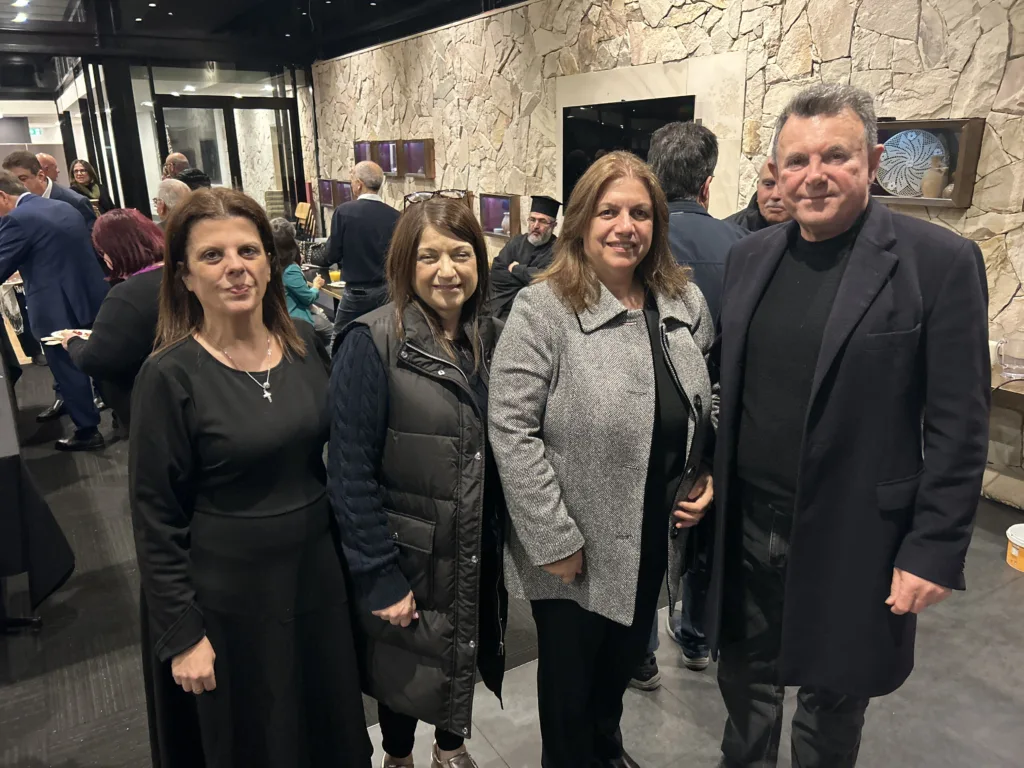
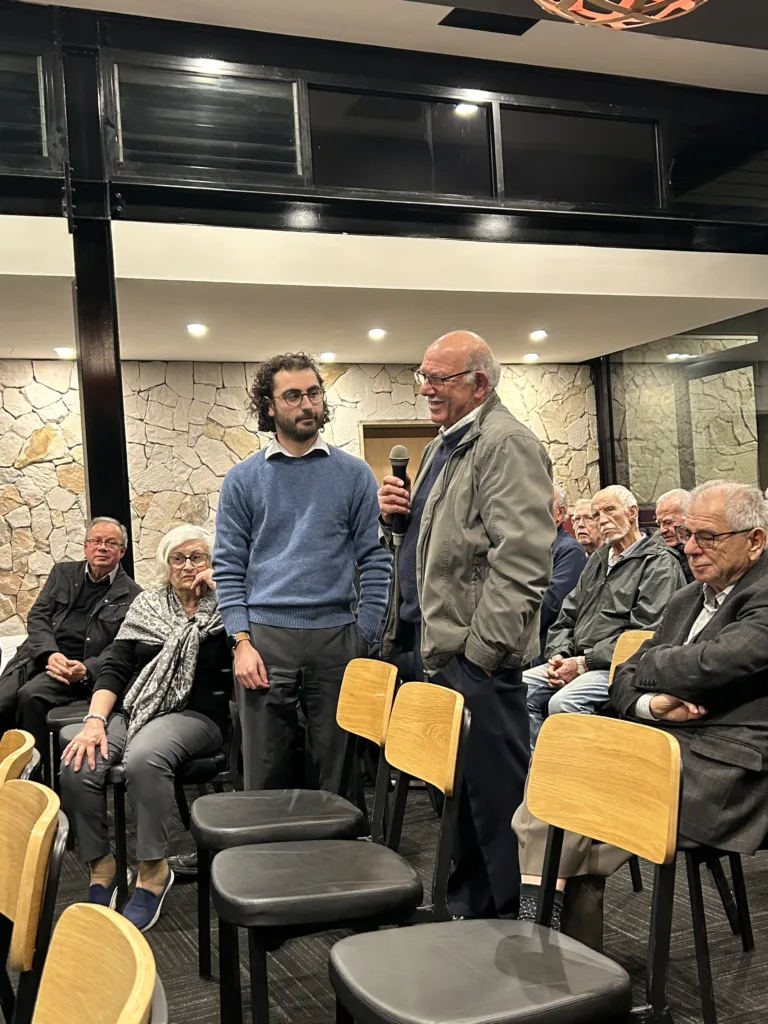
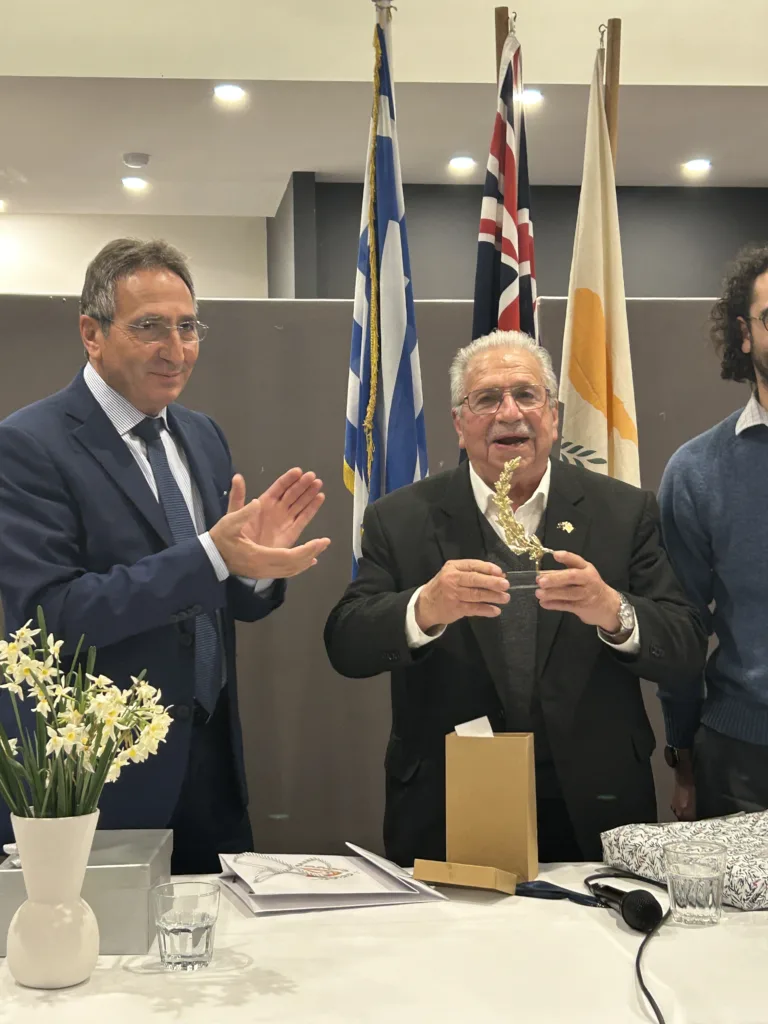
These debates revealed a community grappling not only with history, but with the need for a coherent, discernible and feasible political vision.
Another focal point of discussion was Cyprus’ emerging humanitarian role in broader regional conflicts. In particular, participants examined the island’s involvement in facilitating aid to Gaza and raised concerns about the implications of increased Israeli migration to Cyprus amidst ongoing instability. This regional role was juxtaposed with frustrations over the island’s silence on the world stage.
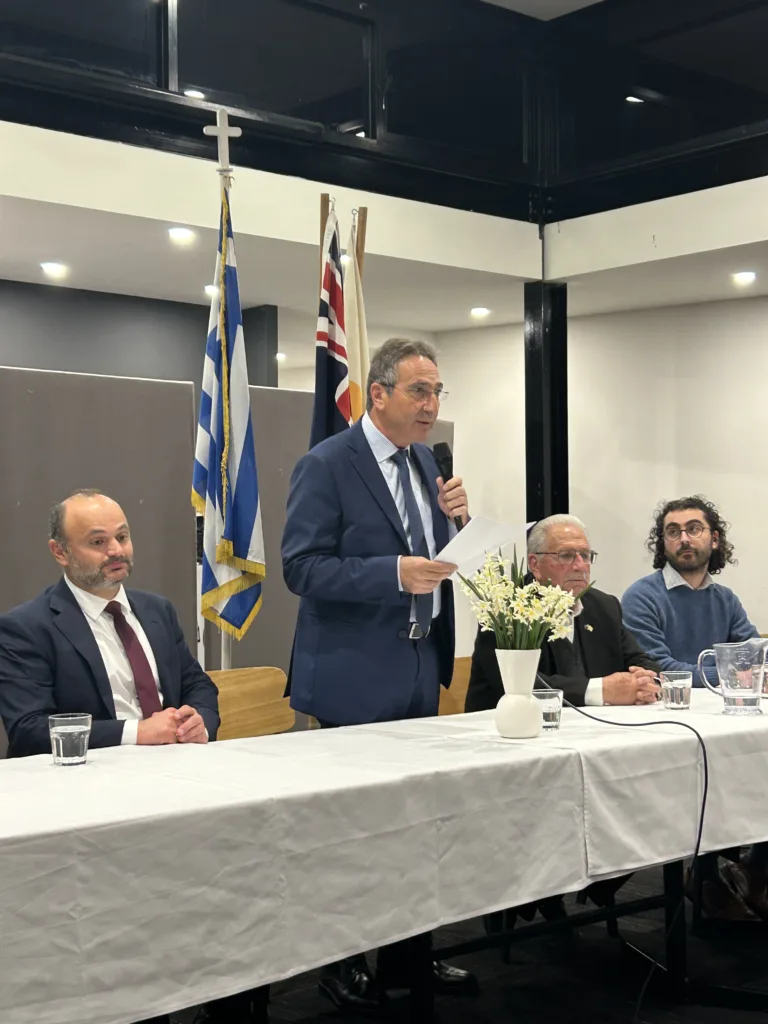
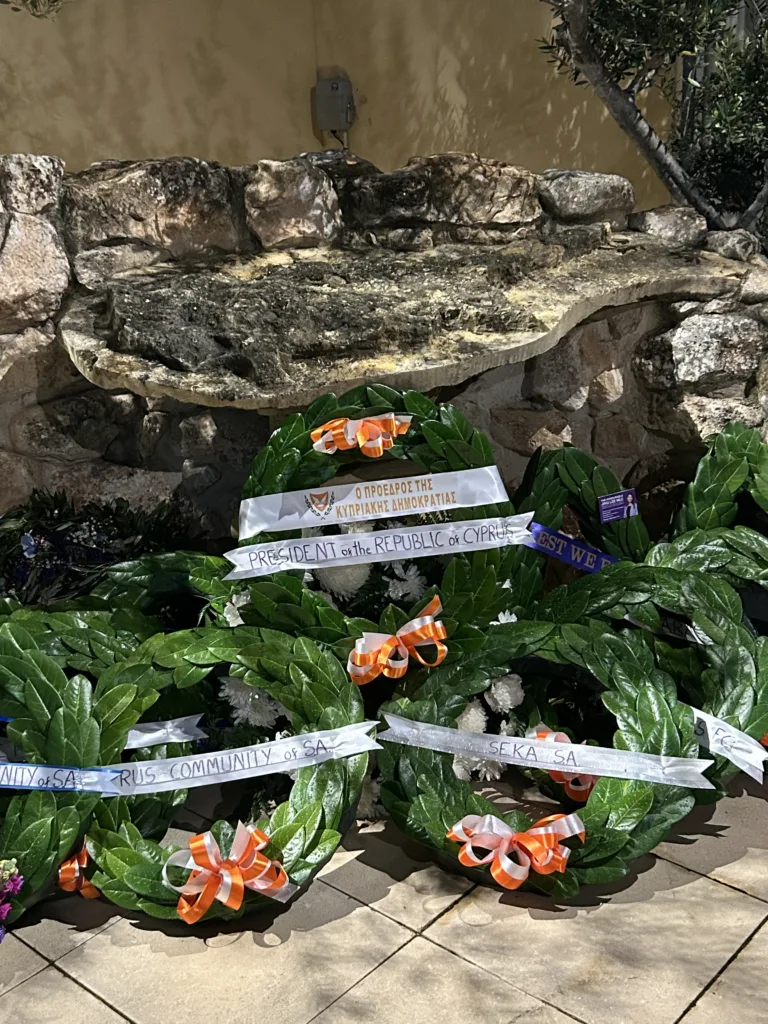
Many attendees criticised the lack of effective representation of Cyprus’ interests in both local media and international institutions, including the European Union. There were strong calls for more vigorous advocacy to articulate Cyprus’ goals and elevate its voice in global forums.
Cypriot officials made clear that the diaspora’s continued involvement, through remembrance, advocacy, and community forums, remains an indispensable part of the broader struggle for a just and unified Cyprus.
